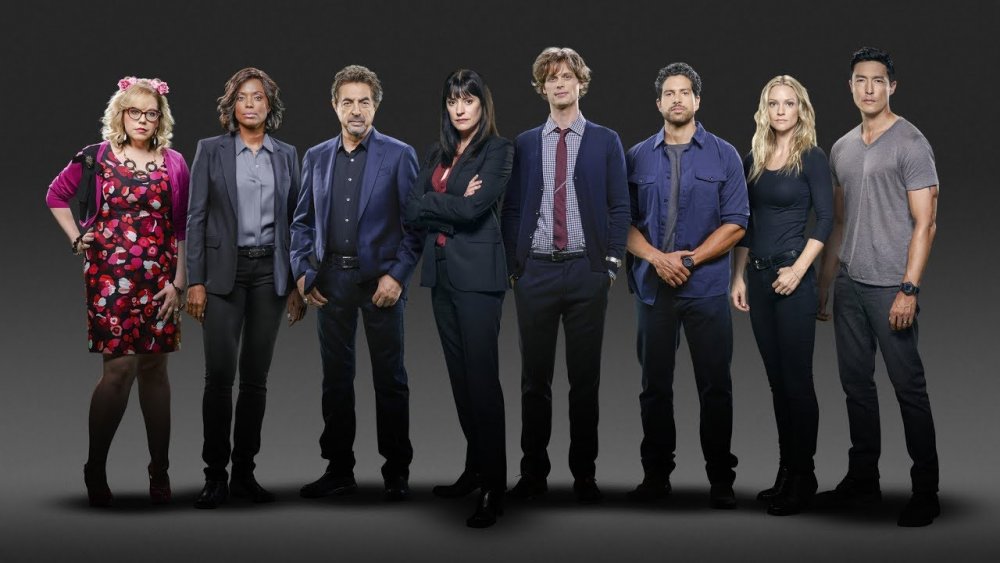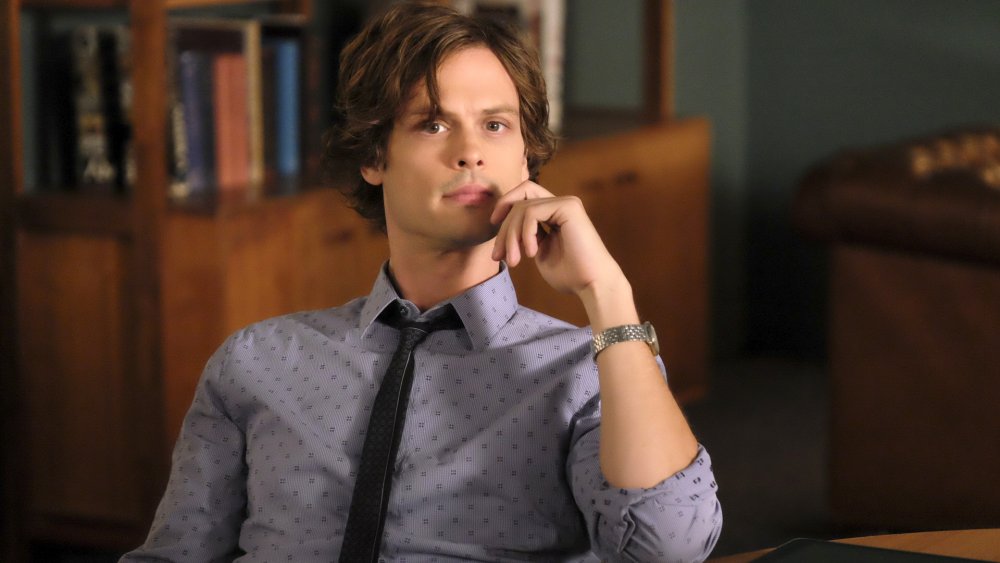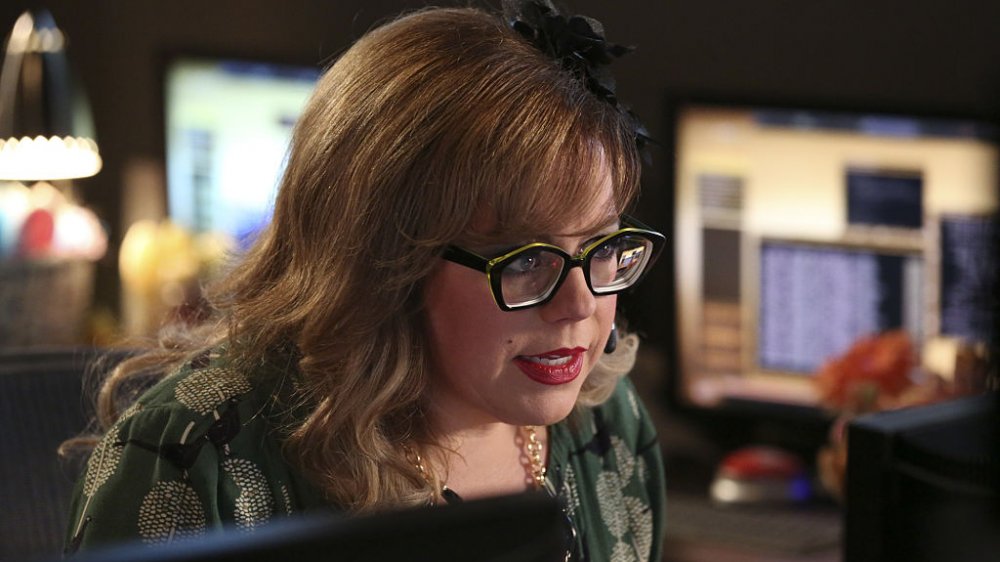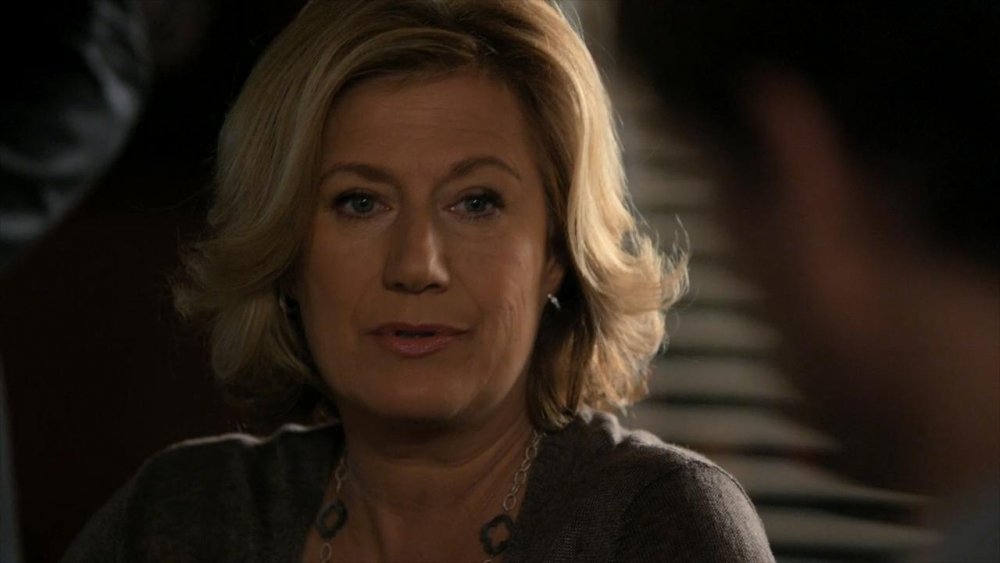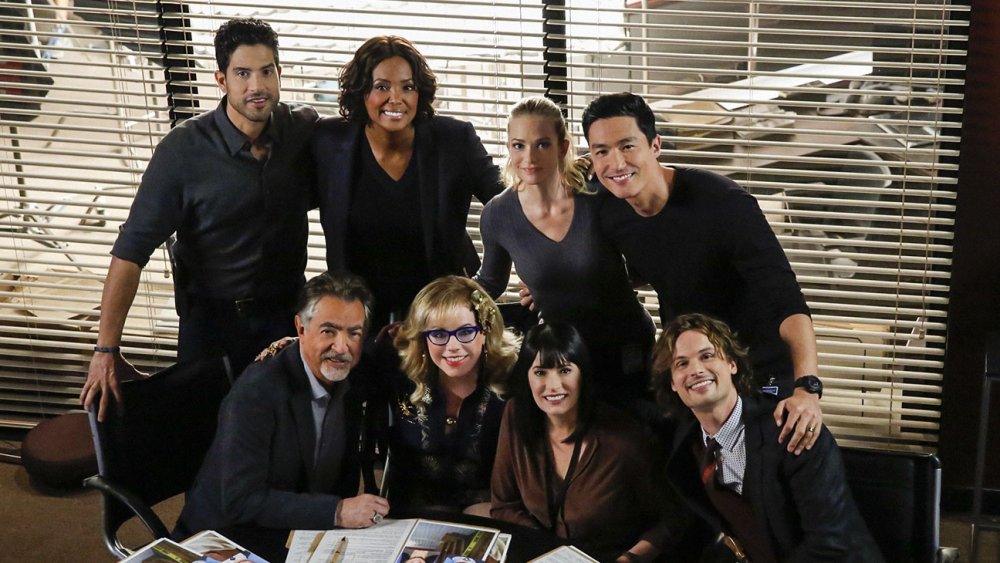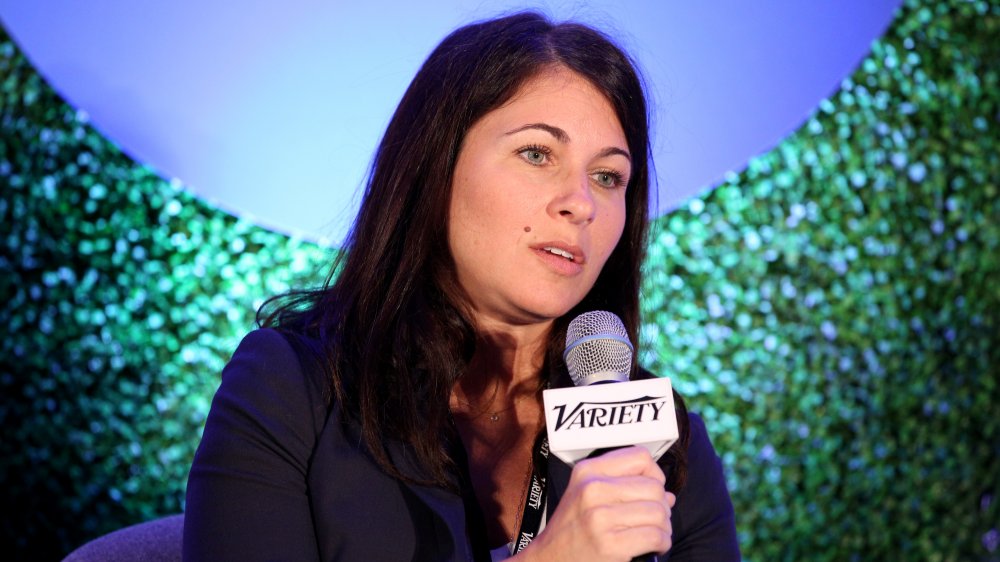The Ending Of Criminal Minds Explained
Contains spoilers for Criminal Minds, primarily its series finale, "And in the End"
After 15 seasons and 324 episodes, Criminal Minds took its final bow on CBS on February 19, 2020. The crime procedural had many actors come and go in its storied history, but its final episode prioritized those who had been there from the beginning and made it to the finish line. In a final story far more deeply focused on its family dynamic than any chase of a serial killer, retrospectives and Easter eggs emerged in almost as great a volume as tears from its cast members. Though its viewership had declined in latter years, there are still plenty of Criminal Minds fans out there, and through its series finale, the show sought to celebrate its brightest spots, shout out its best episodes, and resolve long-requested character arcs that many fans craved for years.
The finale of Criminal Minds ends with a party — because what the show actually means to those who came to love it over 15 years is centered on the relationships between the costars. While the episode dipped heavily into the past for inspiration, the ultimate result is a gentle sendoff into a happy future for what historically has been a rather violent piece of television. Here's how that ending celebrated the most important pieces of Criminal Minds' legacy before the final office door shut behind Penelope.
Resolving Dr. Reid's character
Making Dr. Spencer Reid, played by Matthew Gray Gubler, the primary emotional focus of the first half of the Criminal Minds series finale was the answer to a very old and continuous call to put the tragic genius on the path at last to becoming whole. Being lithe, cute, and nerdy, Reid was naturally the woobie of the show — that's fine for the sometimes-histrionic tone of Criminal Minds, but the trouble was that all these terrible things would happen to Reid. Just a handful of examples include Gideon (Mandy Patinkin) leaving, and then dying off-screen many seasons later; Hotch (Thomas Gibson), the second fatherly figure, leaving; Prentiss (Paget Brewster) faking her death and lying to Reid about it; the multiple near-death experiences Reid himself had; the drug addiction foisted upon him as result of a kidnapping; and the entire situation surrounding his dead girlfriend Maeve (Beth Riesgraf). These moments were never truly dealt with after the fact.
Luckily, the Criminal Minds finale took a substantial amount of time to resolve these issues, some of which date back to the second season, through a purgatory-like hallucination while Reid teetered on the edge of death (again) from a subcranial hemorrhage sustained during the previous episode. A vision of Maeve, who died at the hands of her stalker Diane Turner (Michelle Trachtenberg) on season 8, walks Reid through confronting his endless problems, makes him realize his worth as a human being, and implores him to move on. For the character who has been on nearly every one of those 300-plus episodes, it was the perfect kind of final retrospective any fan would want before saying goodbye to Reid. We all bond to fictional characters in our own ways, and many people would be happy to see acknowledgement from the writers that Reid will finally be OK when all is said and done.
Making Penelope a star
It's no secret that Kirsten Vangsness' Penelope Garcia, dazzling fashionista and intrepid white-hat hacker, was a wildly popular character on Criminal Minds. Though she was featured on fewer episodes, Penelope made it from season 1 all the way through to 15, the same as Reid. Making the epilogue of the Criminal Minds series finale all about her, then, was the only fitting choice.
Since Rossi (Joe Mantegna) reneges on retiring and will likely drop dead in that job, the party at the end of the episode is to celebrate Garcia entering a new chapter in her life away from the BAU. If Criminal Minds must end, it should indeed be because Penelope must leave for bigger and better things and can no longer hold the team together as their emotional core every day. The show's narrative simply cannot operate without her.
It's an extra cherry on top to open up her love life during the coda, too, by having Luke Alvez (Adam Rodriguez) ask her out to dinner. Her character was defined for a long time by her loneliness, and while fans will never get a canon relationship between Penelope and her work-boo Derek Morgan (Shemar Moore) since Derek got married a while back, it will soothe many hearts to see her depart with a possible romance. What's also comforting is that Penelope is moving onto a new job in which she will do just as much good, but not at the cost of her mental health, which was a continuous issue for her character throughout Criminal Minds.
Faces of the past on the Criminal Minds series finale
As one would expect of any closing retrospective, many old friends and enemies returned on the Criminal Minds series finale in the form of archive footage, particularly for Reid's little episode of solipsism. It's a shame Shemar Moore couldn't return for the curtain call as Derek Morgan, but he's pretty busy these days. As to why Thomas Gibson didn't return and reprise his role as Aaron Hotchner, well, that's a bit more complicated given his abrupt firing during season 12.
The physical returns that did come through were delightful. Erin Strauss (Jayne Atkinson), the BAU chief who died during season 8, made it back to play as Reid's initial Ghost-of-Christmas-Past-esque guide for his life-and-death struggle, representing his many sources of guilt over the course of his career. With that scenario came the great and delightful surprise return of George Foyet (C. Thomas Howell), a.k.a. The Boston Reaper, to taunt Reid as his self-described personal form of Satan. Foyet describes his reason to be there best: that the murder of Hotch's wife on season 5 was the turning point of their entire lives, after which nothing was the same, and it was the beginning of their collective end. This is somewhat meta-textually true, as casting shakeups from Criminal Minds season 6 on meant that the lineup was never quite was it once was, and that affected Reid's character in particular.
Finally, it was heartwarming to see JJ Jareau's (A. J. Cook) husband Will LaMontagne (Josh Stewart) come back for an encore. He tends to only show up for major BAU-family engagements since his contributing storylines on seasons 3 and 7 ended, so it's wonderful the actor had the time to appear for the final canonical family cookout.
Specific frames for a special Criminal Minds sendoff
The Criminal Minds series finale also took time to emotionally evoke specific episodes — not so much as discrete Easter eggs, but more as conceptual frames. It's fair to say this finale is meant first and foremost for fans of the show's heyday between seasons 4 and 10, and that's where most of the evocations come from. At one point, Diana (Jane Lynch) asks Penelope if her son Spencer has been hospitalized before. Any longtime fan probably had a tonally-inappropriate joke at that, given Reid's long history — he's been melodramatically hospitalized more times than any other character on the show.
Beyond that tidbit, however, are broader strokes that only older fans might see. The entire scenario surrounding David Rossi's (Joe Mantegna) wife Krystall (Gail O'Grady) being captured by the series' last major serial killer Everett Lynch (Michael Mosley), a.k.a. The Chameleon, has shades of reference to the magnificent episode 100, during which Aaron Hotchner's (Thomas Gibson) ex-wife is murdered. It's particularly noteworthy for the fact Lynch pretends to be a federal agent to enter the house, much the same way Foyet got Haley Hotchner (Meredith Monroe) to let him in. It ends in a much, much better place for Rossi, but the emotional reference is unmistakable.
The final party at Rossi's house is a special reference back to other unwanted departures during tumultuous times in Criminal Minds history. It was where the team held their wake for BAU Chief Erin Strauss, for one. The season 7 episode "Run" ends with JJ officially marrying her longtime partner Will in Rossi's backyard; it was also Prentiss' last major episode (besides a couple of cameo appearances) before her official full-time return on season 12. It feels almost exactly the same in the Criminal Minds series finale: there's an extended montage of them dancing and having fun together, big emotional speeches, and collective bittersweet enjoyment.
It may be sad to see them all leave our television screens, but the entire cast and crew of Criminal Minds made sure that though they may be going, they're all going together.
The Criminal Minds series finale could have been wildly different
Series finales are always a big deal, but especially so when the show hits double-digit season count. Understandably, Criminal Minds' cast and crew wanted the finale and the episodes leading up to it fit the magnitude of the moment. According to showrunner Erica Messer, that magnitude meant entertaining just about anything for the send-off, including episode pitch ideas that were huge departures from the usual tone for the series.
As she explained to Entertainment Weekly, "Yeah, there was crazy stuff thrown out in the room, and we didn't just shoot it down. We would say, 'Okay, how could that happen?' The idea of a live episode or — what do you call it? — a documentary film crew following the crew around. We ended up exploring some of those, but ultimately we weren't able to find a way to keep it true to the series. A musical would just take you so far out, that we just didn't know if that would be the right way to go or not."
We understand that a musical episode is too much of a departure and probably would have been exorbitantly expensive, but allow us one moment's worth of entertainment in considering Gilbert-and-Sullivan-esque overtures about serial murder: "Rossi is the very model of an investigator criminal / he's got information forensical, carceral, and behavioral." See? And that's just the first draft!
Jokes aside, however, it makes more sense to reject the idea of demolishing the fourth wall in favor of the character-centric decisions they ultimately went with. As fun as watching an Office-like scenario or witnessing Reid doing pirouettes on a metatexual stage might have been, Criminal Minds lived and ultimately died with its people closest to its heart.
